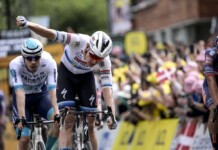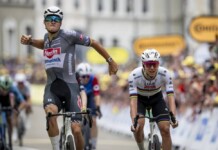By Tom Jow – Last month our great state of Utah was treated to the spectacle that is professional bicycle road racing during the Larry Miller Tour of Utah. Who can deny the excitement of 150 colorful cyclists speeding around the our state roads? Following behind the peloton there is a large entourage of vehicles. There are motorcycles and cars for media, cars for commissars, cars for team support. Lost among all those vehicles is another support team, the neutral support. Their job is to provide service to any rider from any team, hence the term “neutral”. But if every team has a support car (or two at the grand tours), then why is there a need for neutral service?
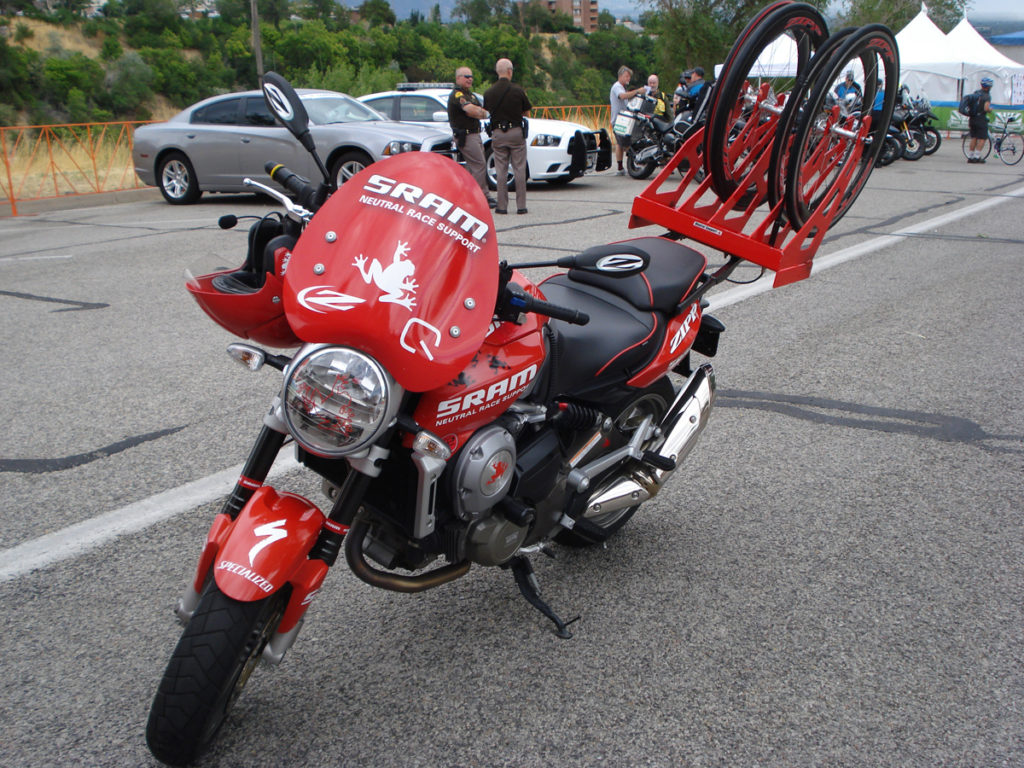
One reason to have neutral service is to be able to provide service for riders over more of the race course. For example, in a race such as the Paris-Roubaix, the race usually breaks up into many groups on roads that are very narrow. Because of the narrow roads, team cars may not be able to reach their riders in due time. Having neutral support on the course often prevents race ending mechanical problems. Another example is when there is a breakaway group with only a small time gap. The commissaires may not deem the gap large enough for several team cars so instead will insert one team car or motorcycle. In the United States, most teams will only have one car (if at all) so if the team cars go with the breakaway group, neutral support will monitor those teams riders in the peloton.
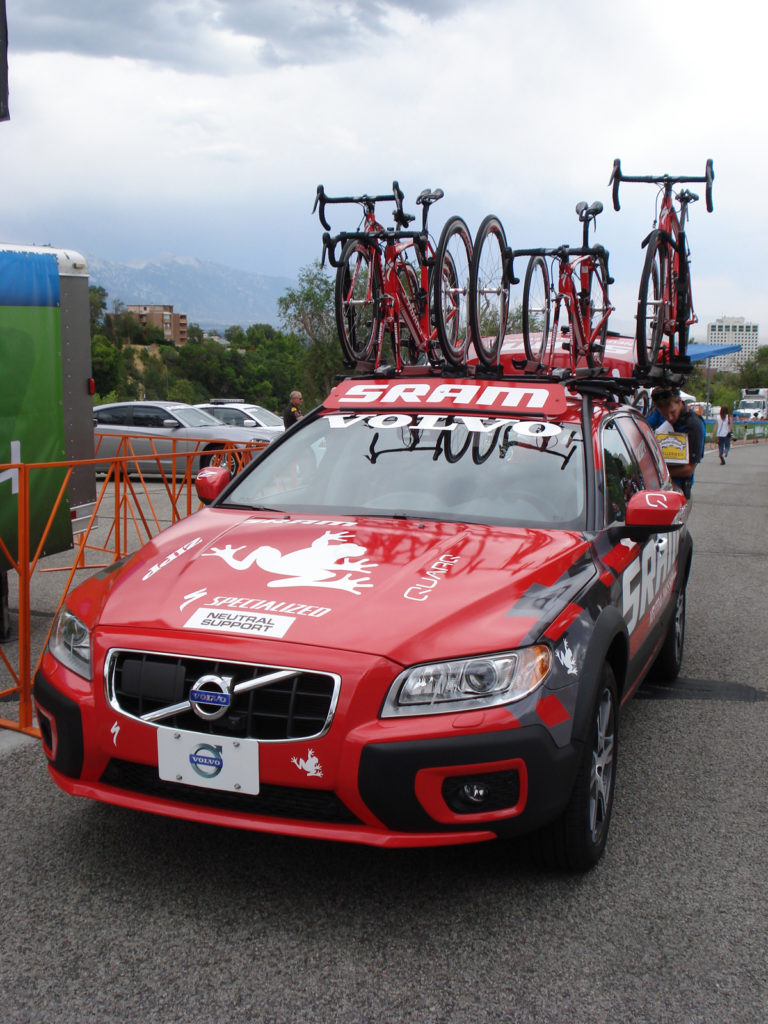
In order to support the entire peloton, a large amount of vehicles and equipment are required. For the Paris-Roubaix, a wheel manufacturer brings 100 wheels, 5 cars and 4 motorcycles. At the Tour of Utah, the SRAM neutral support had three cars and a motorcycle. Each vehicle has a driver and mechanic. The support cars will carry up to 6 bikes and 10 pairs of wheels, in addition to spare parts, tools and water. The motorcycle will carry 2 pairs of wheels, which will be resupplied by one of the cars in the event of a mishap.
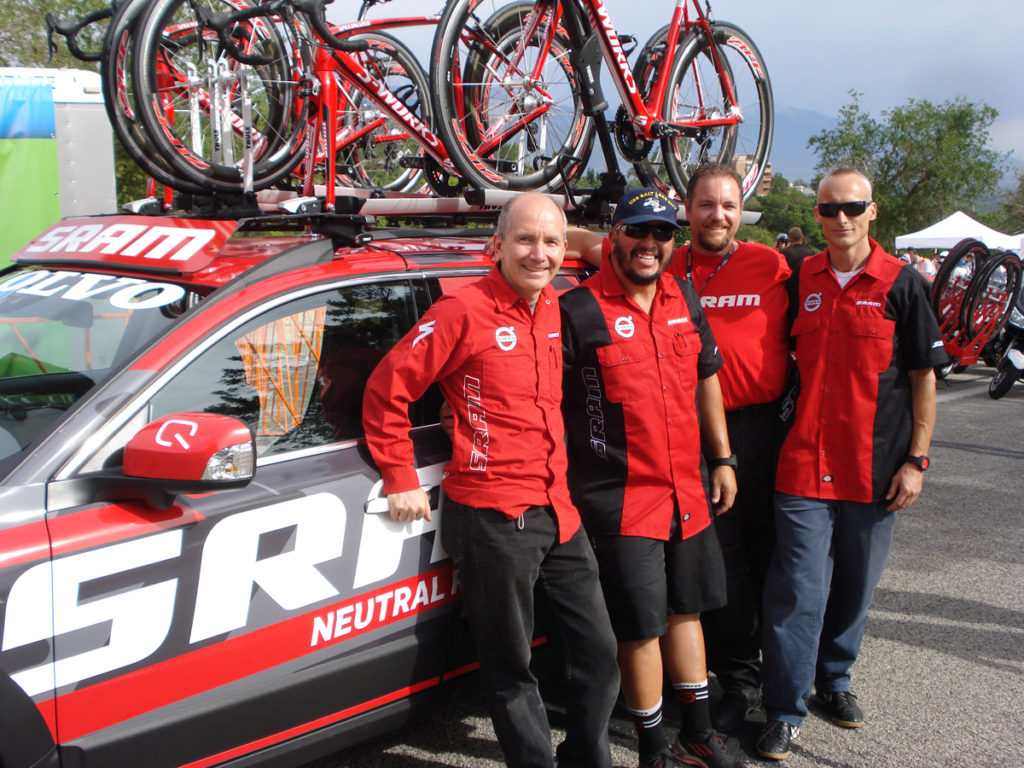
While neutral support is an important part of professional racing, amateur and citizen events really benefit from neutral support. At these events, the mechanics show up well before the start of the days event. This is often as early as 7am. They spend time fine tuning bikes for riders and racers that do not have the luxury of team support. They repair flat tires. Sometimes in-depth repairs such as replacing a derailleur, cables, or brake pads are needed. And then there are crashes. When there is a crash during a criterium, the service pit can be very busy with sometimes as many as 10 riders needing wheels or a spare bike.
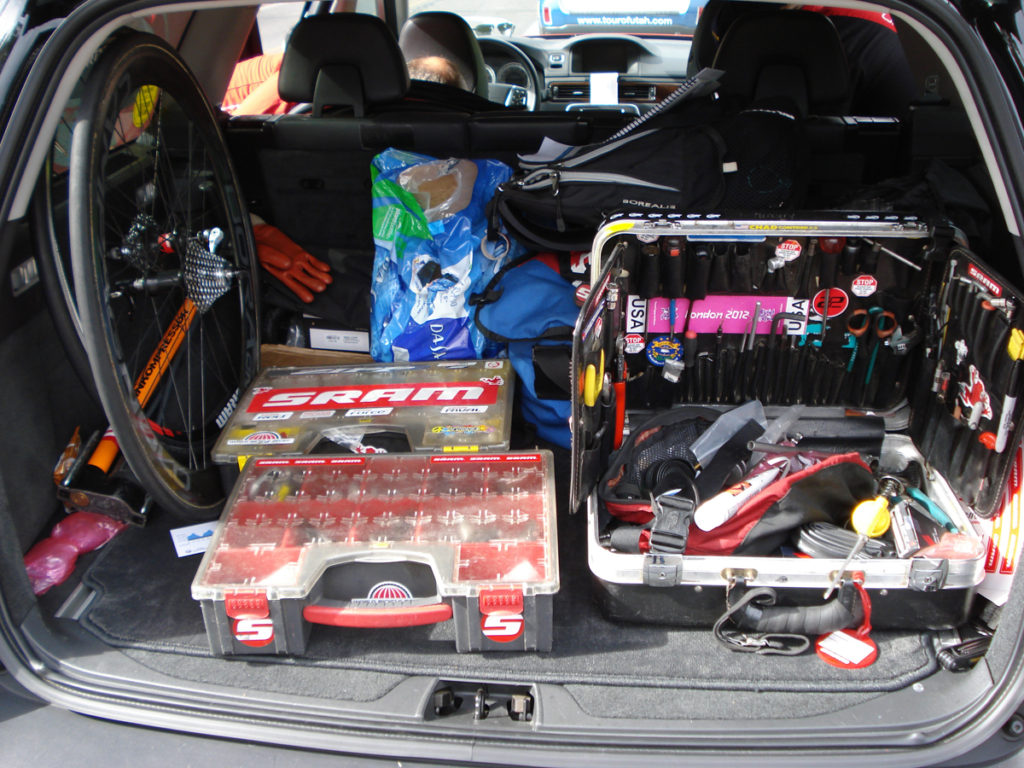
When this occurs, it’s important to keep cool. The most important attribute a neutral support mechanic can have is patience. Working all day on bikes for the general public can be much more trying than for a team. As a neutral support mechanic their job is to help everyone finish the ride/race and have a good time. Patience and bike repair skills are not all they have. Often being the first one to a crash, they have first aid training. Sometimes there will be no official present when a decision needs to be made, so they might have an officials license. In fact, neutral support mechanics have a special license obtained after attending a week-long training course with USA Cycling. At first glance, neutral support does not seem like it’s really all that necessary for professional racing. Many times, it is not. Public events such as centuries and gran fondo rides are where neutral support really shines. They show up early to take care of bikes and riders that may not be 100% prepared. They stay late, until the last finisher crosses the line. There are no fans taking their picture. These guys work with the cycling public and they do so with aplomb. If they happen to be at an event you participate in, say thanks, buy them a beer. Or a cookie.
Got a bike question? Email Tom at 1tomjow@gmail.com.

